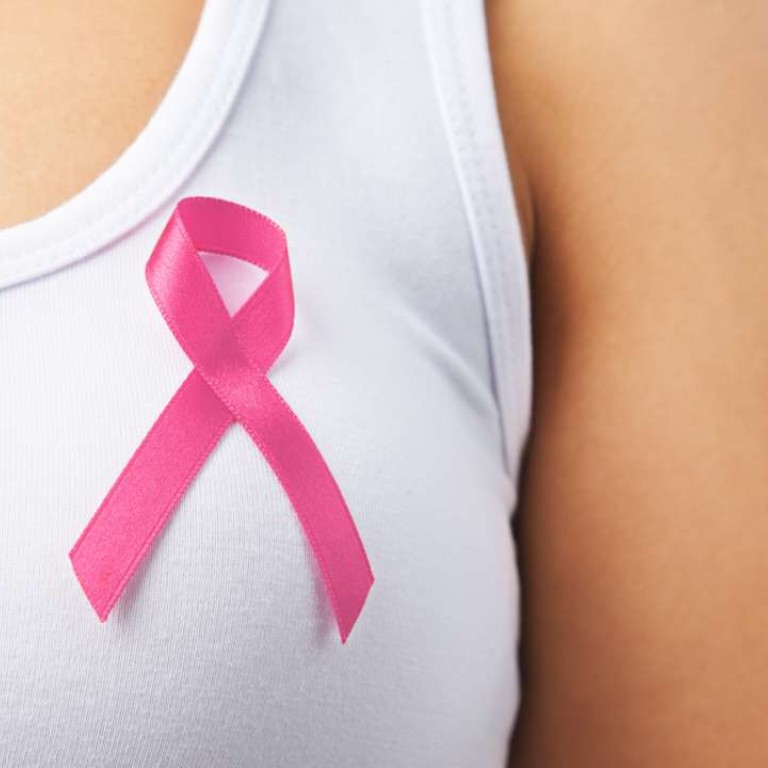
Exclusive | Breast cancer breakthrough: simple drug treatment may prevent most forms of disease
Study indicates that preventative drugs can block a pathway controlling cell growth and remove the chance of the disease occurring
Scientific researchers have suggested that most forms of breast cancer may be prevented by taking a type of drug already on the market.
An international team of scientists have discovered that blocking a mechanism that controls the growth of young cells can virtually remove the chance of getting nearly all types of breast cancer, including those caused by genetic mutations.
One drug on the market called Denosumab is already known to block the pathway, called rankl/rank, and is sold as a treatment for bone diseases.
The researchers tested the drug on mice and found that it was effective in preventing the occurrence of breast tumours caused by a mutation of the BRCA1 gene. The scientists plan to start clinical trials of the treatment on women with the BRCA1 mutation, who have a very high chance of getting breast cancer.
RANKL/RANK control Brca1 mutation-driven mammary tumors
Earlier research by the same team also suggested the treatment would work for women suffering from breast cancer caused by other factors, such as hormonal abnormalities.
About one in eight women in developed countries get breast cancer.
Women from mainland China contributed more than 12 per cent of new breast cancer cases worldwide, according to a research paper published by the medical journal Lancet Oncology in 2014 .
The number of women diagnosed with the disease grew at a speed twice the world average since 1990s, in part due to the reduction in the number giving birth under the one-child policy, the paper said.
Professor Josef Penninger, a scientist at the Institute of Molecular Biotechnology at the Austrian Academy of Sciences in Vienna, led the new research. The researchers’ findings were published in the scientific journal Cell Research on Tuesday.
The use of rankl/rank pathway blocking drugs such as Denosumab to prevent breast cancer will bring a “revolution” in cancer therapy, according to Penninger.
“Our paper introduces the future of breast cancer prevention and prevention is the big prize in cancer research,” he told the South China Morning Post.
“It could be used for all women and this antibody needs to be injected only two times a year. The clinicians tell me [the drug] is entirely safe,” he said.
Rankl, short for “receptor activator of nuclear factor kappa B”, is a molecule on a cell’s membrane that controls the expansion of early cells. Rankl is a protein that passes chemical signals to the molecule to regulate its activities.
Together they form the rankl/rank pathway, which has been known for some time as a cause of some bone diseases. The drug Denosumab is already on the market with Food and Drug Administration approval in the US after clinical trials proved its safety.
Our paper introduces the future of breast cancer prevention and prevention is the big prize in cancer research
The Penninger team found that blocking the rankl/rank pathway virtually eliminated the development of BRCA1-driven breast tumours in mice and human cells.
They also tested the effectiveness of Denosumab. It nearly wiped out genetically-caused breast tumour development in lab animals, according to the researchers.
The team will start a clinical prevention trial in women carrying the BRCA1 mutations “very soon”, according to Penninger.
The finding came after more than 15 years of research.
“We proposed [five years ago] that a rankl blockade could be used to prevent breast cancer, but it was ignored because I was told one needs data in a high risk cancer population,” said Penninger.
“Therefore we started to study BRCA1 mutants because this confers high risk.
“What I am told [is that] breast cancer numbers are markedly increasing in China.
“Our dream is that in the future Angelina Jolie would not need to amputate her breast, and of course millions of other women,” he said, referring to the Hollywood actress who had a double mastectomy three years ago because of the high genetic risk of her getting breast cancer.
“We have safe and effective drugs to prevent breast cancer. Now we have opened the door to this, a door that can be truly tested very fast,” said Penninger.
However, Professor Zeng Yi, who studies breast stem cells at the Chinese Academy of Sciences’ Shanghai Institutes for Biological Sciences, sounded a note of caution.
She said women should not rush to use rankl blocking drugs before the therapy was tested and proven safe in extensive clinical trials.
The rankl/rank pathway in cells had important functions and blocking it might lead to unexpected consequences for women, she said.
“The FDA approval of a rankl/rank blocking drug does not mean it can be bought and used by every woman. These kind of antibodies are usually in very short supply and extremely expensive,” Zeng said.
“The research findings may contain some hope, but it should be treated cautiously by patients and their families,” she said.

